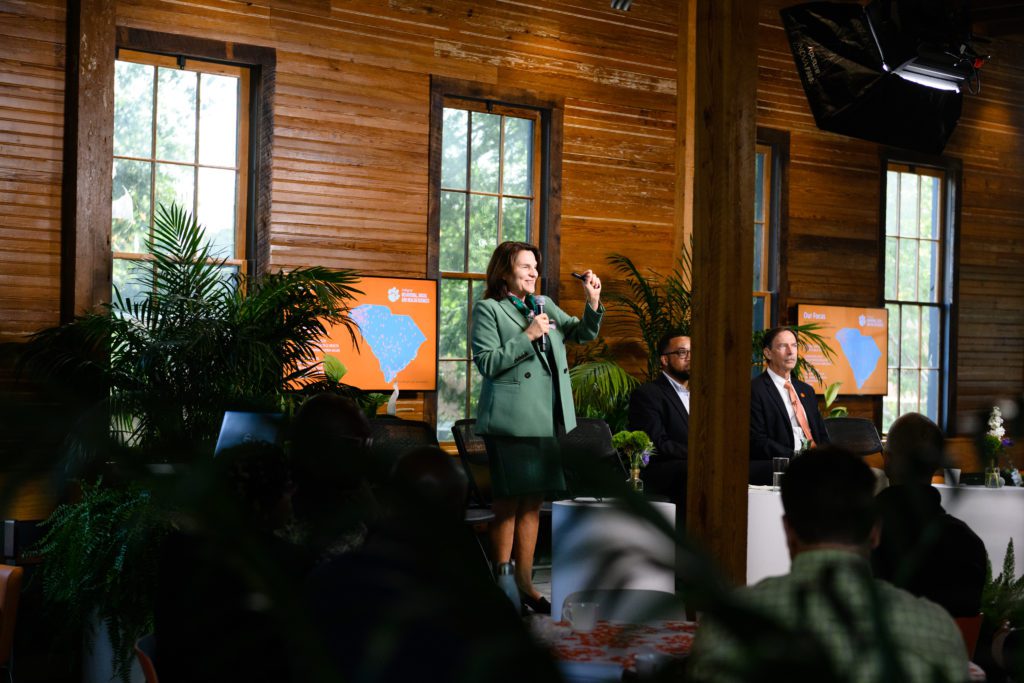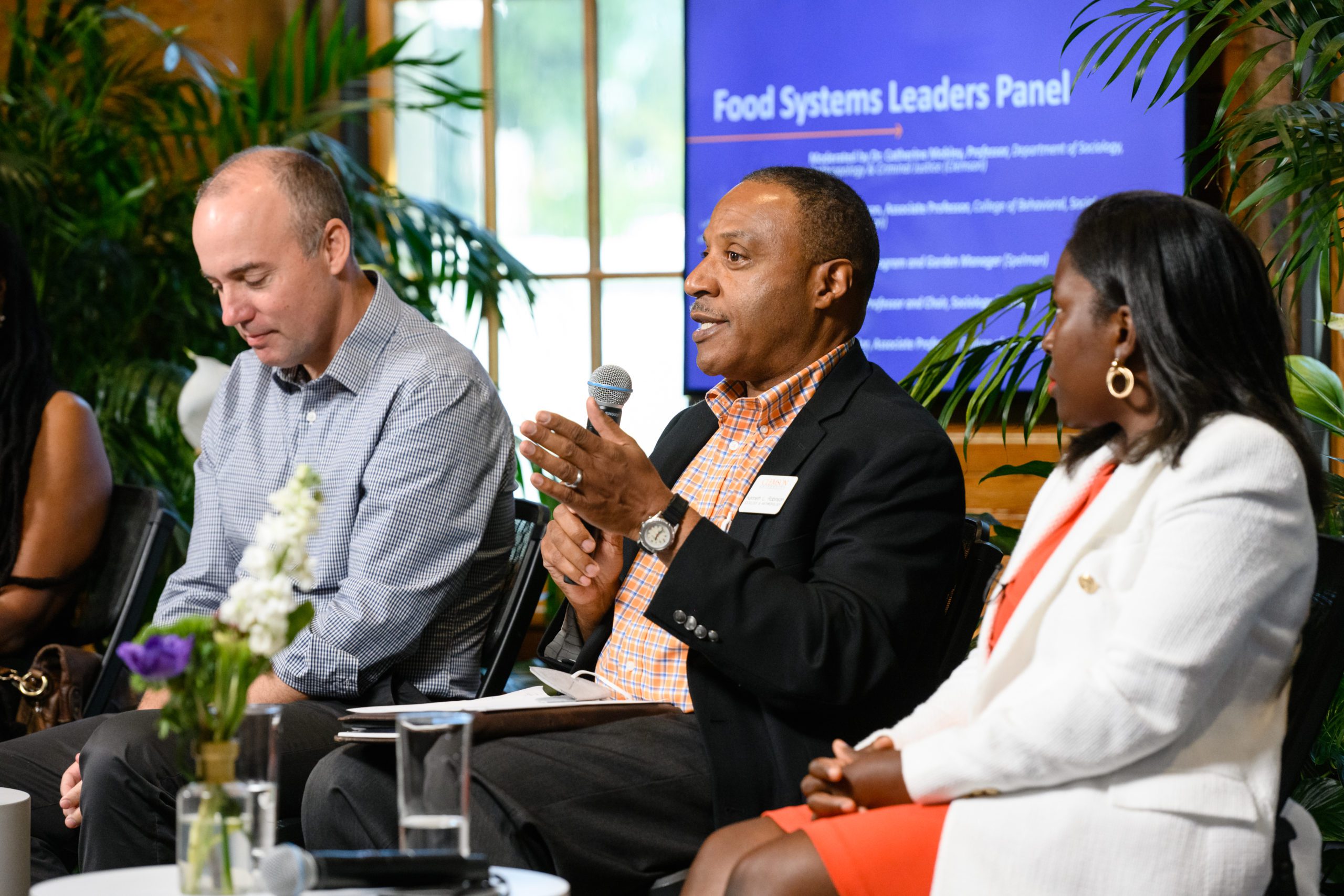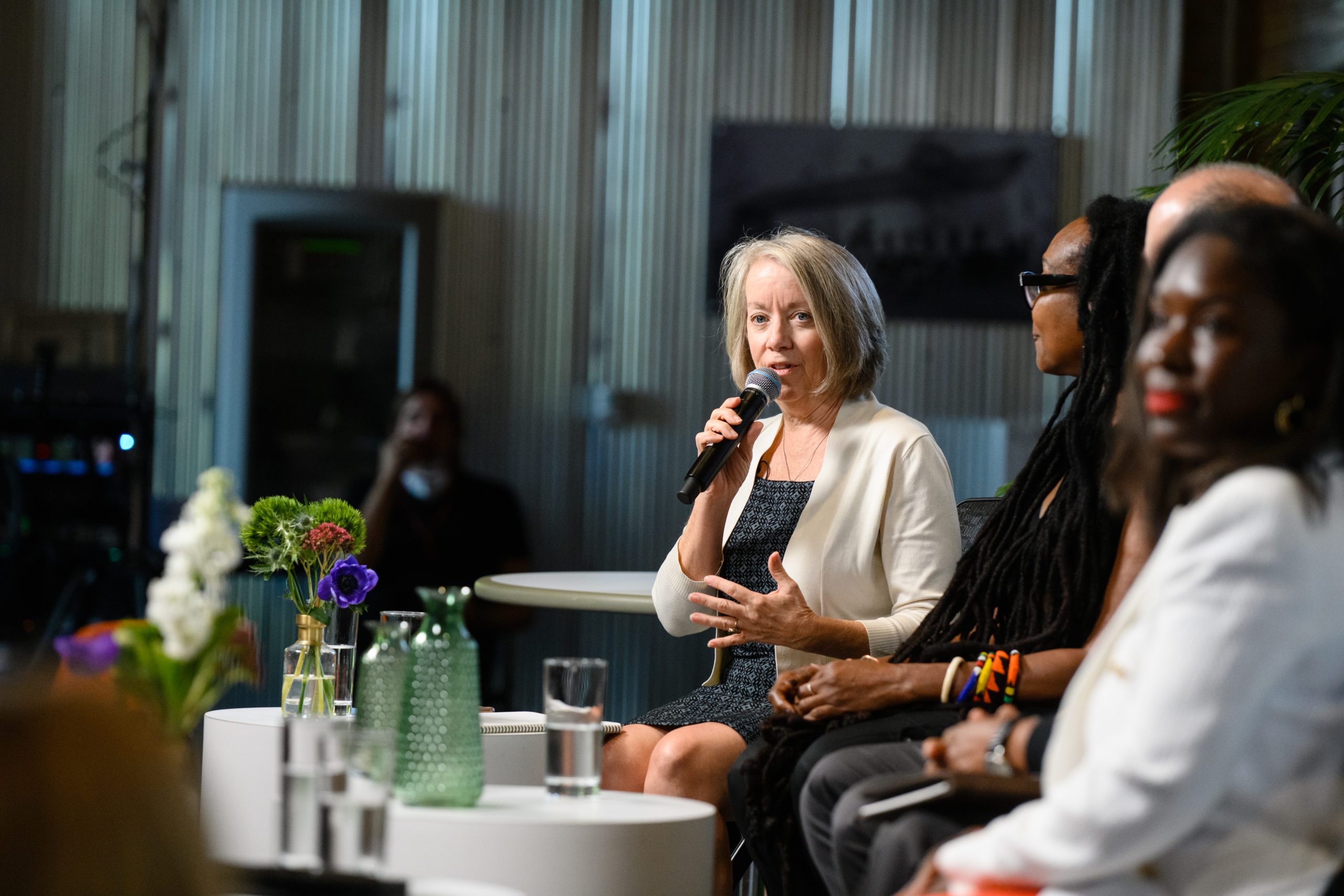Researchers from across Clemson University and the state convened at a landmark event for poster sessions and talks. Food systems experts representing the United States Department of Agriculture (USDA), the Association of 1890 Research Directors, and the Virginia Tech Center for Food Systems and Community Transformations were among those represented.
The symposium, sponsored by Clemson’s College of Behavioral, Social and Health Sciences (CBSHS); the College of Agriculture, Forestry and Life Sciences (CAFLS); USDA; and the Watt Family Innovation Center, aims to foster interdisciplinary food systems’ research that will ultimately improve the lives of South Carolinians.
“Access to healthy food is a basic human need. Food is one of those areas of research that transcends all disciplines and touches on everything from, economics to health to culture to social dynamics,” said CBSHS Dean Leslie Hossfeld. “The College of Behavioral, Social and Health Sciences is delighted to be working with the College of Agriculture, Forestry and Life Sciences and the United States Department of Agriculture to make this topic a priority across the University and across the state. It is imperative we continue to work together to tackle key issues facing our state.”

Since 2019, CALFS dean Keith Belli and Hossfeld have worked together to improve rural health, disease prevention and disease self-management through nutrition programs through Clemson Rural Health and Clemson Health Extension.
Expert speakers
This year’s symposium included 40 presentations covering a broad range of food-related topics and research presented by expert guest speakers, CU faculty, staff and graduate students.
The keynote speaker was Alton Thompson, executive director of the Association of 1890 Research Directors, which is a federation that coordinates research initiatives among the nation’s 19 autonomous 1890 land-grant institutions. Thompson is a rural sociologist and expert in the fields of agromedicine, rural poverty/development, labor economics and the structure of agriculture. He was former provost and executive vice president at Delaware State University and former Dean of the College of Agriculture and Environmental Sciences at North Carolina A&T University.
Other speakers this year included Saundra Glover, USDA rural development state director for South Carolina, and Kim Niewolny, director of the Virginia Tech Center for Food Systems and Community Transformation.
Glover is a Distinguished Professor Emerita and adjunct professor in the department of health services policy and management in the Arnold School of Public Health at the University of South Carolina. She has been at the forefront of public health practice and health equity initiatives locally, nationally and internationally. She served for several years as the first associate dean for health disparities and social justice in the Arnold School of Public Health and directed the School’s Institute for Partnerships to Eliminate Health Disparities.
Niewolny is an associate professor in the Department of Agricultural, Leadership and Community Education at Virginia Tech and serves as director of the Virginia Tech Center for Food Systems and Community Transformation. Her work centers on the role of power and equity in community education and development with scholarly interests in participatory and cultural community development, critical pedagogy, multi-sector collaborations for sustainable food systems, and the political praxis of community food work. Current initiatives emphasize Appalachian food access and equity, new agrarian sustainability, agroecological knowledge, and the intersection of technology, farm workers and disability.
Future plans
Participants heard from Carolyn Gahn, director of the Farm-to-Institution Aramark Corp, a new initiative within Clemson designed to bring University partners together to discuss the impact of regional food systems and the role of land grant institutions.
This new program was introduced at the Inaugural Farm-to-Institution Summit held September 13-14, 2022 on campus. The Summit, in partnership with Aramark, provided an opportunity for University partners to discuss the impact of regional food systems and the role of land grant institutions. Participants heard from Aramark, the College of Agriculture, Forestry, and Life Science, the College of Behavioral, Social and Health Sciences, as well as the USDA. There were also presentations and panels by food researchers from Clemson, FAMU, Furman University, Tulane University, Spelman College, as well as organizations such as Gullah Farmers’ Alliance, 4P Foods. Chefs from Aramark and other Universities spoke about what they are looking for in local food, and representatives from local farms such as Hickory Mill Milk, were part of a farmer roundtable.
Get in touch and we will connect you with the author or another expert.
Or email us at news@clemson.edu





